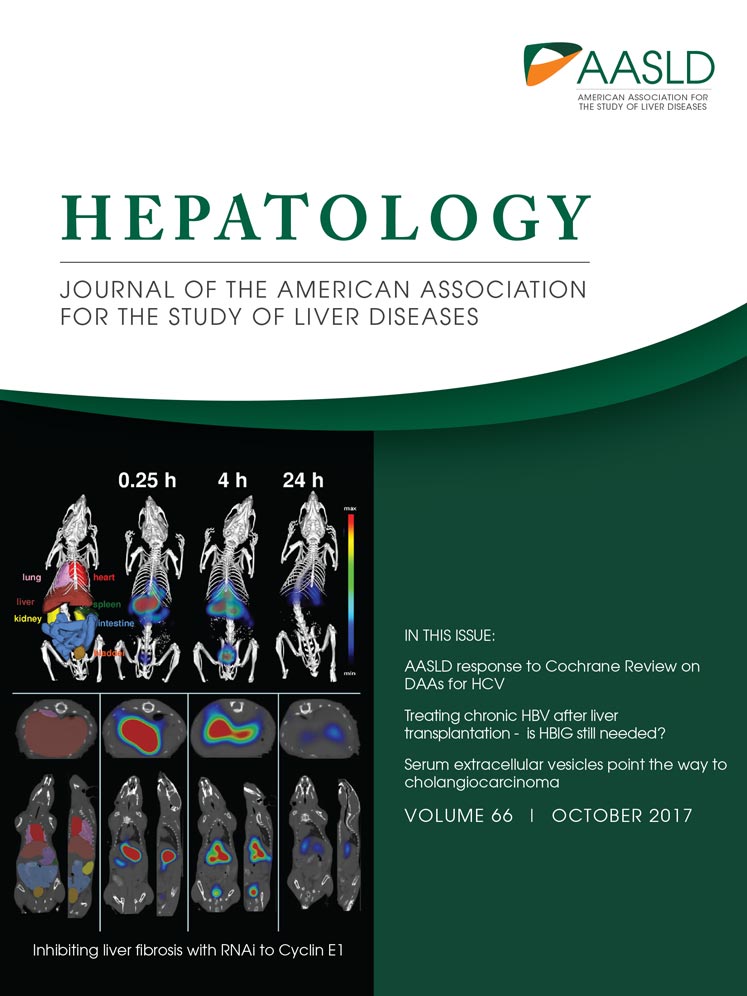Reply
Potential conflict of interest: Nothing to report.
We thank Dr. Sauerbruch for the interest in our study. We agree that a relevant issue in the study was the improved survival observed in chronic hemodynamic responders versus nonresponders. However, the assertion of our colleague, suggesting that nonresponders might not get any benefit from medication (given the inefficacy to reduce hepatic venous pressure gradient [HVPG]) and that drugs may even worsen outcomes in such cases, is debatable. β-blockers have beneficial effects beyond the capacity to decrease portal pressure and experts recommend to add endoscopic variceal ligation (EVL; if not performed) in nonresponders to β-blockers instead of switching to EVL.1 Combined therapy with β-blockers ± nitrates plus EVL is currently recommended after acute bleeding, with drugs being the cornerstone because meta-analysis of RCTs comparing combined therapy with monotherapy have shown an improvement in survival with the addition of drugs to EVL, whereas the addition of EVL to β-blockers has no effect on mortality.2 Our study further suggests that intensifying drug therapy may achieve hemodynamic response in previous nonresponders and that this can improve prognosis.
The suggestion of our colleague is based in the fact that, in contrast to our study, in the HVPG-guided arm of their study comparing transjugular intrahepatic portosystemic shunt with HVPG-guided therapy, hemodynamic nonresponders (switched to EVL alone) had similar survival than responders.3 However, such apparent difference in the prognosis of nonresponders versus responders between the two studies may reflect a different baseline risk. Among survivors to variceal hemorrhage, those who only have bleeding have better survival than those with other decompensation of cirrhosis in addition to bleeding.4 In the German study, 92% of patients had Child class A/B (in the HVPG-guided arm, 49% were class A, 45% without ascites).3 Thus, a high proportion had bleeding without other decompensation. In our study, 131 patients (77%) had other decompensation in addition to bleeding, and death risk was higher in these patients than in those who only had bleeding: 44% versus 8% (P < 0.001 by log-rank). In a post-hoc analysis, we have observed, among patients who had only bleeding, a similar risk of death in chronic hemodynamic responders versus nonresponders (hazard ratio [HR] = 1.01; 95% confidence interval [CI] = 0.06-16.2; P = 0.99). Conversely, among patients who had other decompensation in addition to bleeding, we observed a trend toward lower risk of death in responders versus nonresponders (HR = 0.59; 95% CI = 0.32-1.01; P = 0.09). These data suggest that death risk is concentrated in patients with other decompensation of cirrhosis in addition to bleeding, and that a survival advantage should be investigated in studies focusing this population.
-
Càndid Villanueva, M.D.,1,2
-
Isabel Graupera, M.D.,1,2
-
Edilmar Alvarado, M.D.1
-
1Gastrointestinal Bleeding Unit
-
Department of Gastroenterology
-
Hospital de Sant Pau, Barcelona
-
Autonomous University
-
Barcelona, Spain
-
2 Centro de Investigación Biomédica en Red de
-
Enfermedades Hepáticas y Digestivas (CIBERehd)
-
Barcelona, Spain




